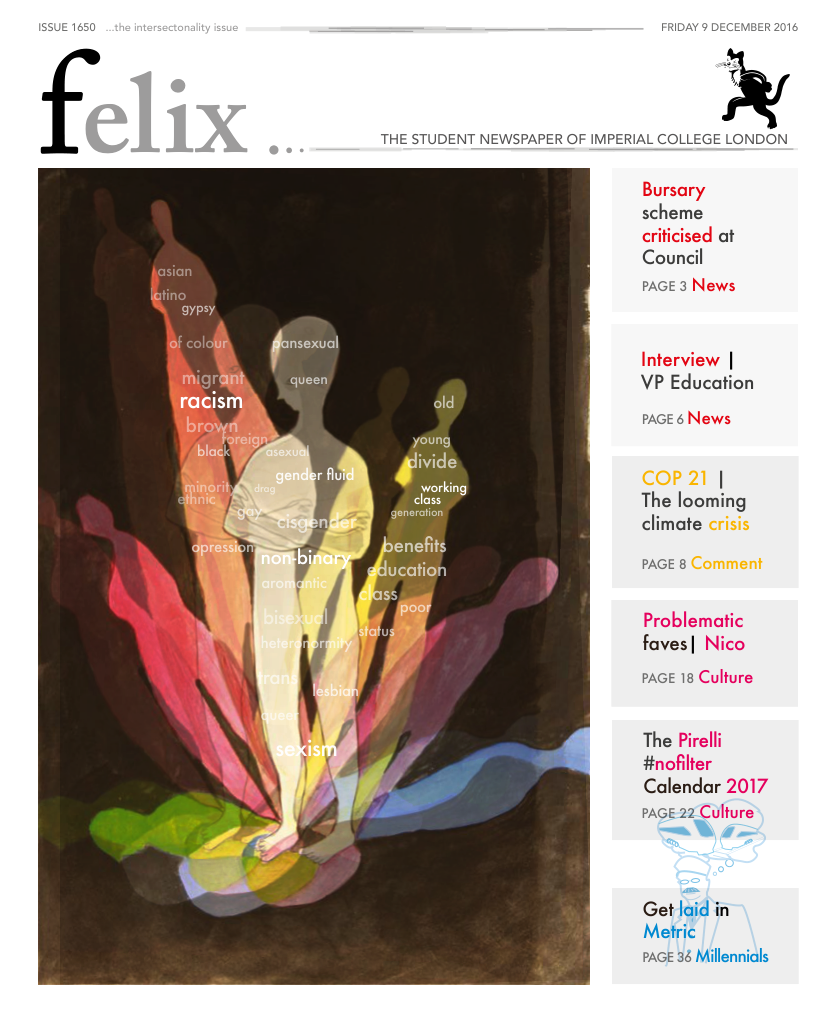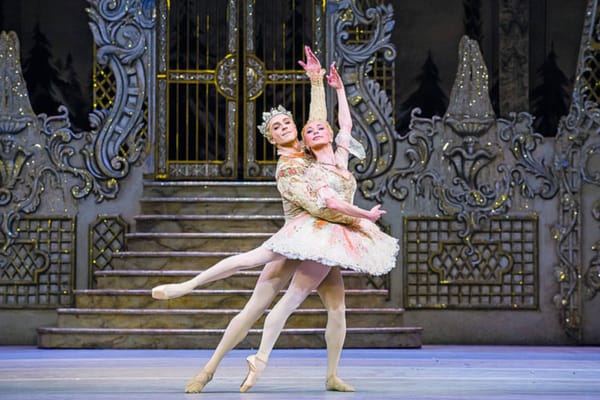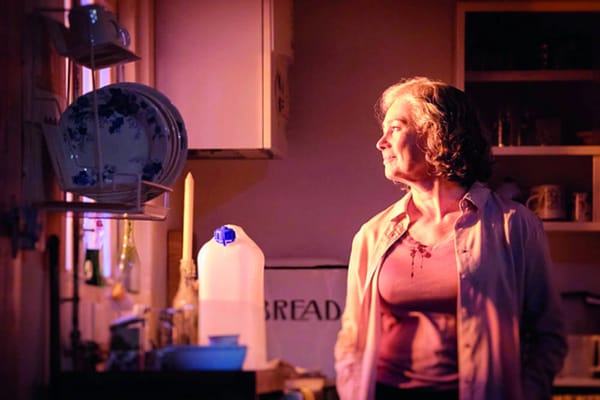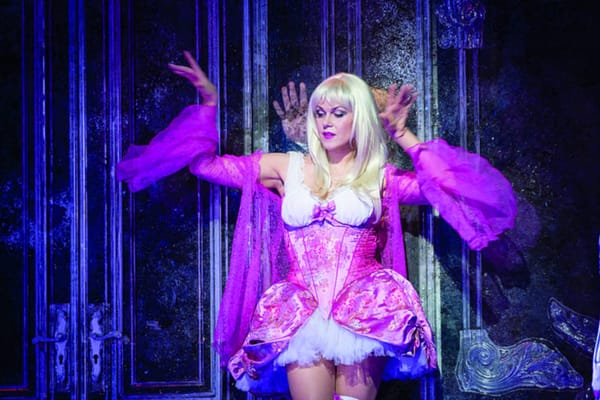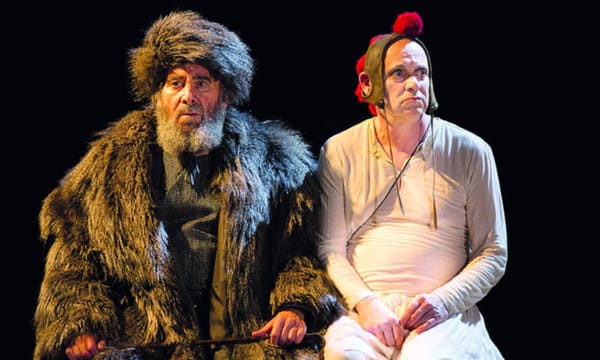Arts Interviews | Edie Edmundson
Puppetry is having a bit of a renaissance at the moment thanks to shows like War Horse
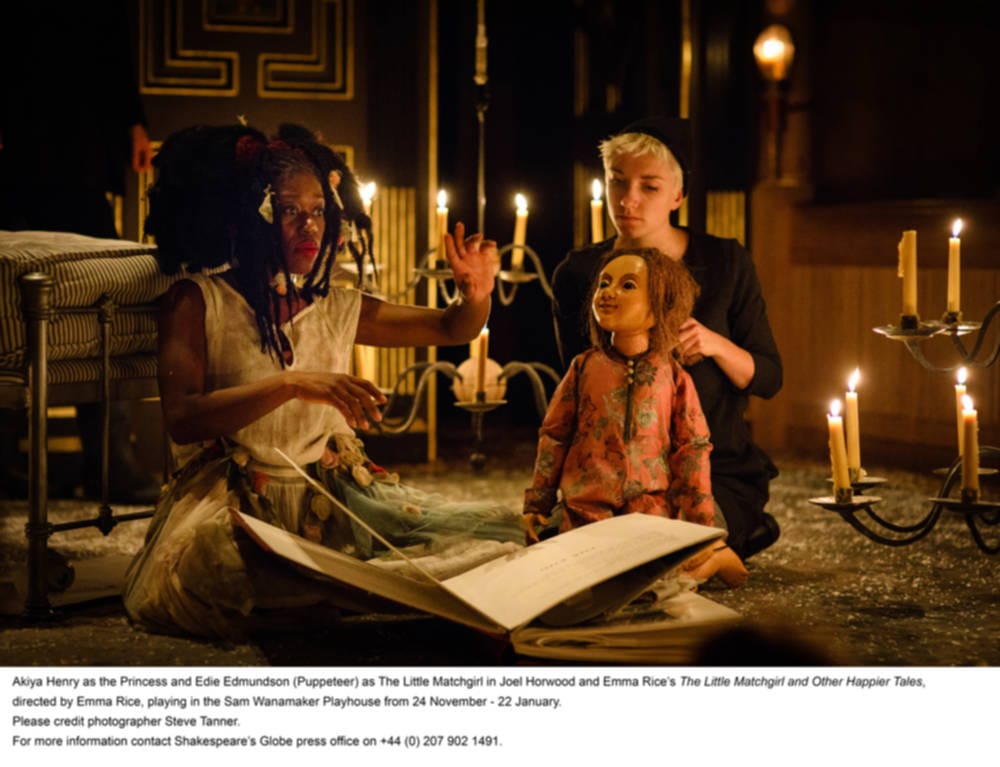
The Little Matchgirl is a show populated by people and puppets, of which the eponymous character, masterfully operated by Edie Edmundson, is one. Our writer, Ezra Kitson, was fortunate enough to speak with her after the performance.
Edmundson was drawn to puppetry by a National Theatre production of Phillip Pullman’s His Dark Materials where she realised the power of puppetry in storytelling. "Puppets require the audience to use their empathy" and "do away with the ego" of conventional performance. She has taken shows to Edinburgh Fringe and honed her craft on the Movingstage Marionette Theatre on the Puppet Theatre Barge, a barge moored in Little Venice. After pursuing a drama degree where she cemented her love for the theatre, Edmundson, a graduate of Queen Mary’s, undertook a a ten week course at the Curious School of Puppetry, an institution she believes “will have an enormous part to play in the growth of puppetry in the UK”.
Her previous work has tackled complex issues that you may not associate with puppetry. Earlier this year she staged The Old Woman Made of Stardust at the N16 Theatre, a story about a young girl struggling to navigate her grief after the death of her grandmother, based partially on a letter Edmundson’s grandmother wrote to her before she passed away. Along with other puppeteers, she has been involved in Wondering Hands, a puppet company that staged a show at the Brainchild Festival in July this year. 'Sex and Puppets', is a piece that aims to fill the void left by lack of relevant, useful sex education provided by schools. It explores "consent, gender and sexuality", using puppets as an "accessible edge" into a subject that is often either veiled in analogy or misrepresented in explicit, exploitative pornography.
The Little Matchgirl at the Sam Wanamaker Playhouse is perhaps the most mainstream attention she’s received since entering the world of professional puppetry in 2015. Given the finesse of her performance, it’s hard to believe she is in such an early stage of her career. I ask her if it was daunting to be part of a show where her puppet is required to be on stage the whole time, especially given the intimate atmosphere of the Sam Wanamaker. "It’s physically tiring," she admits; "your attention has to be fixed on the puppet's movements, but at the same time you have to constantly watch with peripheral vision to dodge the flailing limbs all around you." The candle lit stage also adds an incendiary risk – especially when holding a wooden puppet with long dry hair – but despite this, Edie finds the whole thing very exciting: "a great feature of the Sam Wanamaker is that the lighting is the same for both the performers and the actors, and this creates a shared experience: it’s lovely to be able to see the audience and together enjoy these vibrant stories."
Of the stories that are told in the show, The Princess and the Pea is her favourite. On the surface it’s "funny, ridiculous and sad" but there is also a rich moral aspect, "dealing with trust in relationships. Does she think the themes in the play are too dark for a Christmas performance? "Not at all, these stories have a very important message, particularly to hear at Christmas. The tragic end [of The Little Matchgirl] is still relevant to our modern world, with issues of homelessness, child poverty and refugees.’ There’s a lot to be learnt from these tales, and the takeaway message shouldn’t be one of gloom, but rather thoughtfulness and hope."
Given the extraordinary range of her achievements since becoming a full-time puppeteer, we might expect her star to rise further: “the dream is to make a living from puppetry one day! I'd love to be able to combine working as a professional jobbing puppeteer with making my own work as a writer, director and performer” she says of her plans for the future. Might the Wondering Hands company be part of that? She hopes so, adding that she is interested the role puppetry can play in distilling complex issues, especially in therapy situations. Edmundson’s puppetry is innovative, and she is on a mission to make sure the “artform gains respect and recognition” and the puppeteers are acknowledged for the skills and training they must acquire. “I’ve been incredibly lucky to get this part” she says of her Little Matchgirl performance, not all her colleagues are so lucky. “Many skilled, trained puppeteers lose out on jobs to actors with little or no puppetry experience.” That may not be the case for long though: “puppetry is having a bit of a renaissance at the moment thanks to shows like War Horse”, she says. Edmundson aims to be part of that renaissance, working with Wondering Hands to bring the Victoriana artform to the 21st century – you read it here first, the puppet revolution starts now.

